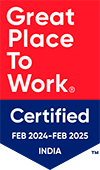
After 3 decades in manufacturing, this 53-year-old founded a logistics startup for critical goods
CriticaLog: A Technology-Driven Approach to Critical Logistics
Critical logistics solutions address the fragmented, chaotic, and unorganized nature of the logistics market, often cited as a pain point for many organizations. However, with the rise of e-commerce and on-demand delivery startups, the market is fast transforming, and logistics is becoming more agile and transparent. With the emergence of several logistics players like Blackbuck, Delhivery, GoJavas, Ecom Express, and several others, the differentiators within the logistics space have increased. Today, you have e-commerce, intra-city, and on-demand logistics.
There is even the emergence of logistics and supply chain management organizations for critical products like CriticaLog. Focusing on criticality, CriticaLog specializes in providing critical logistics solutions by collaborating closely with customers to build and operate faster and more secure supply chains. These can be for products such as raw materials, finished goods, or spares. The criticality is determined based on sensitivities regarding value, temperature, handling, transit time, nature of the product, confidentiality, lifespan, or even an emotional quotient to the owner.
To ensure that the end consumer gets complete visibility, the team has setup a platform eCritica’ for ‘end-to-end‘ visibility and audit trails for accountability.
“Our system provides shipment details and activity tracking with pro-active event exception alerts. Apart from the standard features, ‘eCritica’ allows for innovative IT Solutions that are vital for critical logistics operations,” says 53-year-old Sujoy Guha, Co-founder and CEO CriticaLog.
eCritica: End-to-End Visibility and Accountability
eCritica, a key component of our critical logistics solutions, provides a range of features including real-time and proactive shipment status, updates, and alerts via email and SMS. These critical logistics solutions also offer multiple tracking identifiers such as Shipper, PO, Goods Receive Notes, IDs, and invoices; ATM-like pin code verification for delivery accuracy, acknowledgment, and accountability; scanned POD images; ease of connectivity with the customer’s ERP system; and Android tablets for remote data entry and barcode scanning.
Our IT system, designed specifically for critical logistics solutions, can be interfaced with that of the customers to enable Strategic MIS reporting and analytics; transport management; and consignment and order tracking, among other features.
Addressing the Gap in Critical Product Logistics
With over 30 years of experience in various businesses, including a 19-year stint at TNT, Sujoy observed a significant gap in critical logistics solutions. He found that traditional logistics companies transported both personal and ‘critical’ products with normal bulk cargo. He noted that end-consumers hadn’t explored differentiated logistics solutions for such items.
Traditional logistics companies also rarely recommended differential treatment for these critical products, primarily due to a lack of differentiated network and handling capabilities. As a result, sensitive/critical products had very little logistical choice in the past. It was to address this crucial shortfall in critical logistics solutions that he conceived the idea for CriticaLog.
Growth and Future of Critical Logistics
Incorporated in 2013, CriticaLog began offering its critical logistics solutions commercially in August 2014. In just 29 months, CriticaLog has expanded to 54 locations across India, with nearly 200 personnel working across its 24 offices. Sujoy notes that in its second year, the company experienced growth of over 600 percent from the first year, and over 80 percent in its third year from the second.
“We are expecting to grow at 100 percent YoY for the next few years,” Sujoy adds. CriticaLog’s growth in critical logistics solutions is supported by funding from ‘LoGon Investments’, created by the founding family of Gondrand, a global logistics company present in Switzerland since 1902. Gondrand Holding AG is active in 3PL, warehousing, customs clearing, and supply chain management.
The Expanding Logistics Landscape and CriticaLog’s Role
At present, the country’s logistics industry is worth $300 billion, according to the ‘Logistics Market in India 2015-2020’ by market researcher Novonous. In fact, the report states that the Indian logistics market itself is estimated to grow at a CAGR of 12.17 per cent by 2020. Local networking for faster deliveries also gained momentum in 2015. Paytm launched a two-hour delivery model for mobile phones, similar to Snapdeal’s omni-channel strategy. With the growth of e-commerce, the logistics space is fast expanding, and the year already looks promising for the space.
Having invested in B2B logistics startup Blackbuck, Flipkart has announced that it will be investing $2.5 billion into logistics needs over the next four to five years. Besides roping in GoJavas, Snapdeal made six acquisitions last year–mostly in the technology and logistics sectors–reducing its delivery times by 70 per cent. After Loginext and Grey Orange, there is a possibility that the likes of Roadrunnr and Delhivery might be the next to tie up with the biggies. With Amazon, Flipkart, Snapdeal, and even Paytm expected to overtake even the big offline players, taking a leap of faith in logistics seems like the inevitable next step.
Source: Your Story
